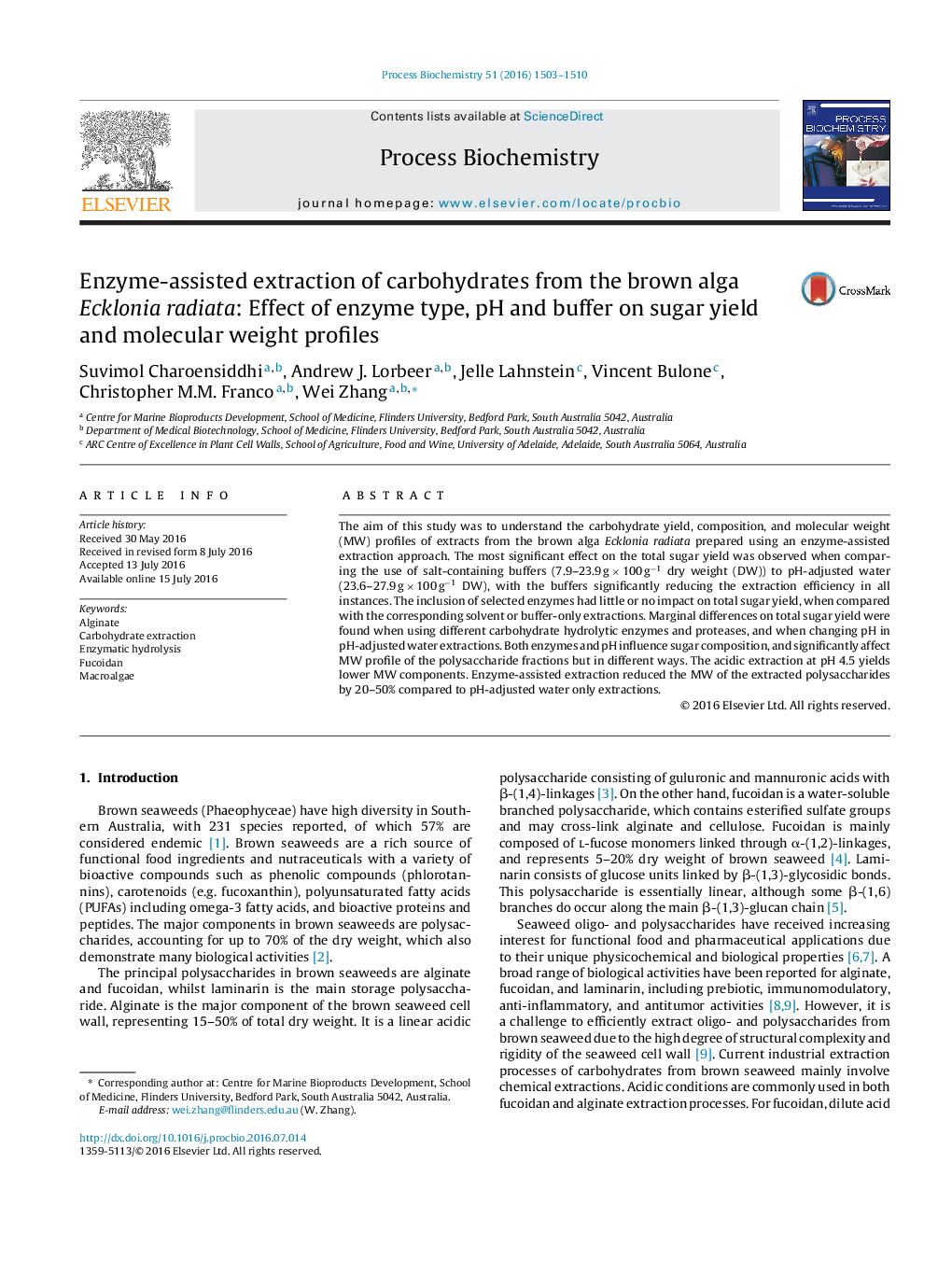| Article ID | Journal | Published Year | Pages | File Type |
|---|---|---|---|---|
| 6453023 | Process Biochemistry | 2016 | 8 Pages |
â¢Enzyme, pH, and buffer are key process parameters of seaweed carbohydrate extraction.â¢Both enzyme and pH reduce molecular weight of polysaccharide extracts differently.â¢Buffer salts reduce extraction yield of seaweed carbohydrates.
The aim of this study was to understand the carbohydrate yield, composition, and molecular weight (MW) profiles of extracts from the brown alga Ecklonia radiata prepared using an enzyme-assisted extraction approach. The most significant effect on the total sugar yield was observed when comparing the use of salt-containing buffers (7.9-23.9 g Ã 100 gâ1 dry weight (DW)) to pH-adjusted water (23.6-27.9 g Ã 100 gâ1 DW), with the buffers significantly reducing the extraction efficiency in all instances. The inclusion of selected enzymes had little or no impact on total sugar yield, when compared with the corresponding solvent or buffer-only extractions. Marginal differences on total sugar yield were found when using different carbohydrate hydrolytic enzymes and proteases, and when changing pH in pH-adjusted water extractions. Both enzymes and pH influence sugar composition, and significantly affect MW profile of the polysaccharide fractions but in different ways. The acidic extraction at pH 4.5 yields lower MW components. Enzyme-assisted extraction reduced the MW of the extracted polysaccharides by 20-50% compared to pH-adjusted water only extractions.
Graphical abstractDownload high-res image (140KB)Download full-size image
